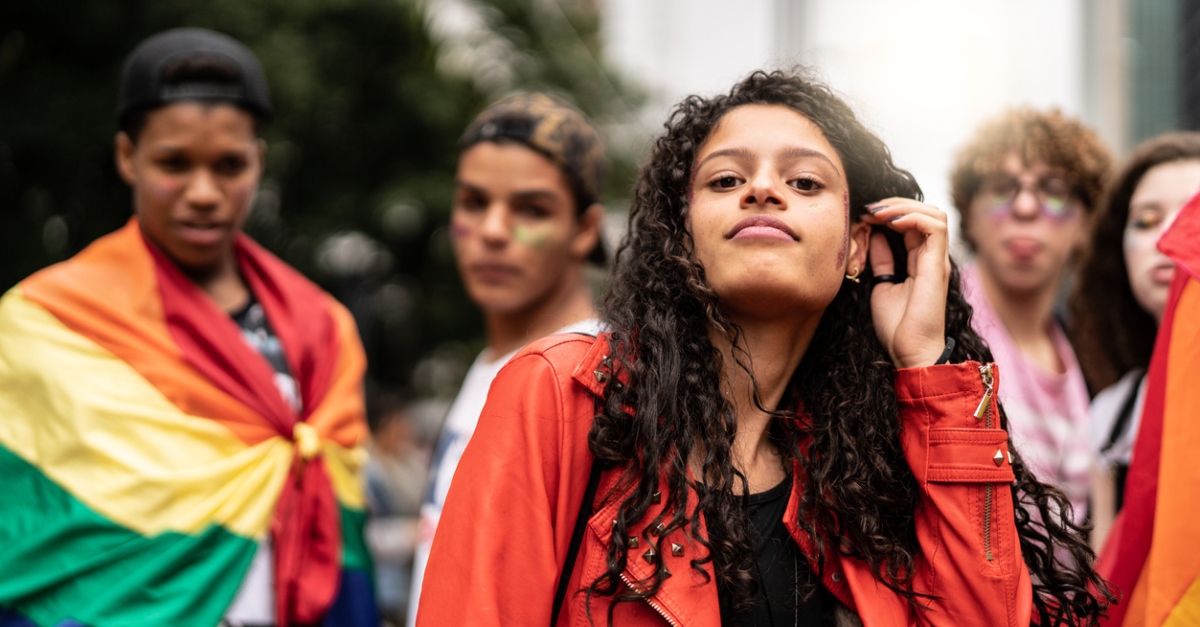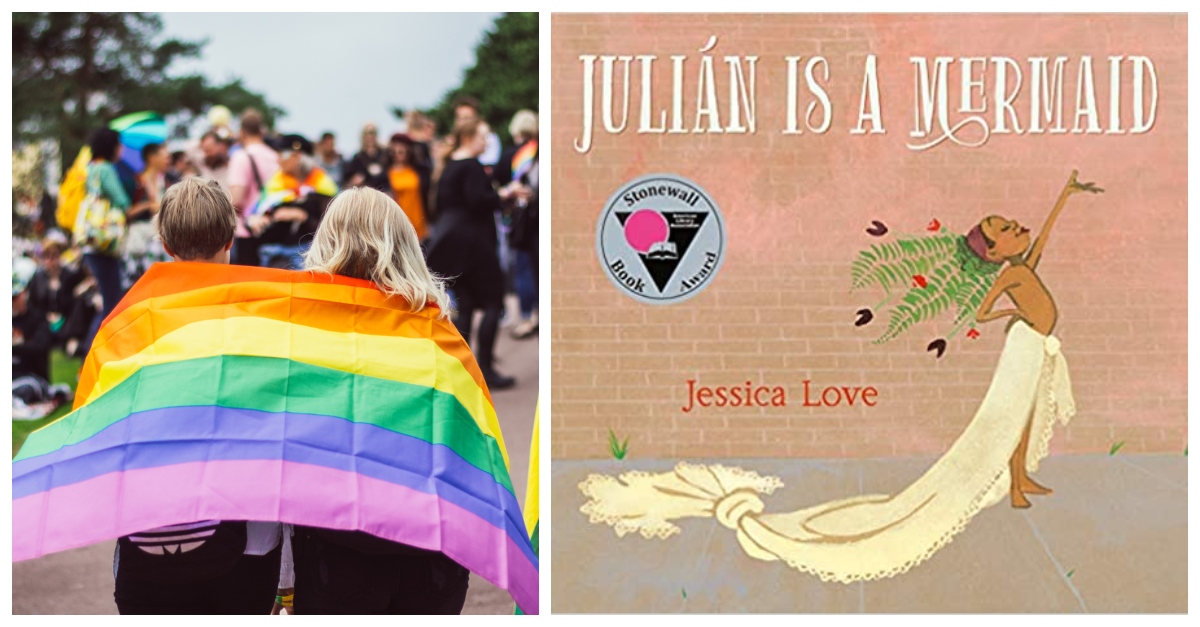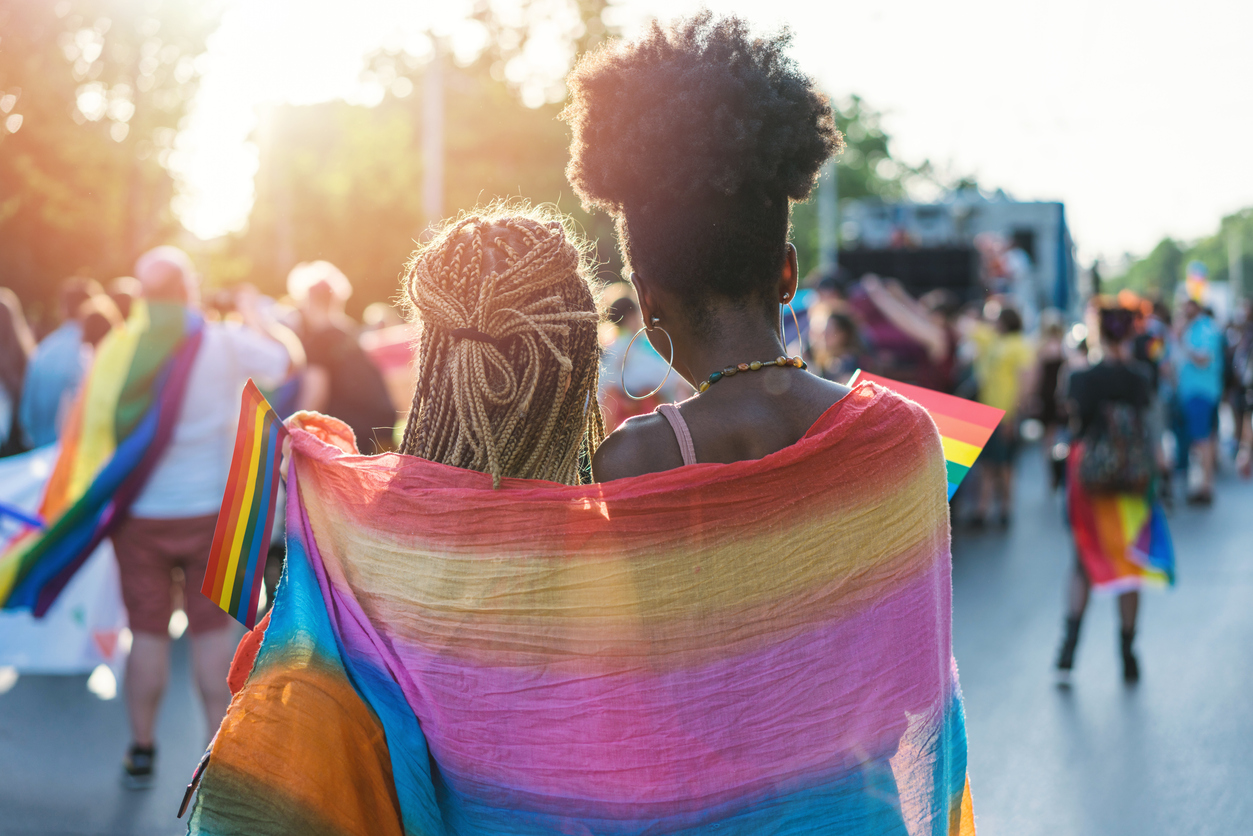
October 11 is National Coming Out Day. It was started in 1987 with an idea by Rob Eichberg and Jean O'Leary that was formed on the belief that the visibility of LGBTQ people is what leads to compassion and momentum toward civil rights. Too often people don't get involved with something unless it impacts them directly, and the point of the original March on Washington for Lesbian and Gay Rights on October 11, 1987, was to show that there are more queer people than some may want to believe. Also, those people who claim they don't know a gay or transgender person actually do. National Coming Out Day is about representation. It is about being seen and seeing ourselves in others, whether gay, straight, cisgender, or transgender.
While it's tempting to scream, "We're here, we're queer! Get used to it!" there is a bit more nuance to coming out than throwing open the closet door and waving the Pride flag. Here are some things to think about if you are the parent of a kid who just came out or are a parent wondering when it will be your time.
My Kid Just Came Out. Now What?
Congratulations on having the same child you had before he or she made the announcement to you. I wish coming out wasn't something people had to do. I wish kids could grow up with the assumption they are queer and offered the same acceptance as a straight and/or cisgender child. But if your child found the courage to tell you this intimate detail, your job is to thank them for giving you the privilege of knowing them better.
Sadly, it can take up to two years for parents to fully accept their queer child. Other parents reject their child and force them out of the home or lose them when they run away to get away from the abuse. A day is too long for a child to question their parents' love. When a person comes out, they never forget the reactions of those they love. When acceptance is strong, queer kids are less likely to suffer from mental health disorders, substance abuse, self-harm, and suicide ideation and attempts. Rejection increases all of these risks at disproportionately higher rates compared to straight and cisgender children.
You may be scared, confused, and in a state of mourning for what you (wrongly) assumed would be your child's future, but your first and most important job is to love your child unconditionally. It's OK if you need to process this information but do it away from your child and without putting the emotional labor on them to make you feel better.

Thankfully, there are many parents who have supported their queer kids before you who have written books to educate and comfort allies in need of support. Queer teens and adults have written their stories too to give you a better understanding of what your child may be experiencing. There are Facebook groups and groups through your local Pride center that are great resources for parents who need help and for their kids who want to find solidarity with other queer kids. PFLAG is a national organization specifically started to assist family and friends of queer folks. See if there is a local chapter in your area.
And remember to breathe and follow your child's lead. Gender, sexuality, and gender expression are fluid. The most important thing to remember when your child comes out to you is that their happiness is the priority and that starts with your commitment to unconditional and unwavering love.
I Want To Come Out, But…
Hi. I know we don't know each other, but I see you. Coming out is not a one-time event and everyone's journey is different. I was very sure of my sexuality from a young age; it took me longer to realize I was transgender. I identify as queer and feel really good in that label, but it can be hard to know exactly what or who you are. And if you are in a relationship and/or have kids, those labels are often compared to how others see you and themselves.
It may feel like there is more at risk if you come out as gay or transgender later in life; there is a risk of losing people and relationships. You may be worried your kids will reject you or will be taken from you by unsupportive and bigoted spouses. I can't make any promises for how people will react to your truth, but I do know that it's very lonely to keep yourself hidden out of shame or fear.

I also know how liberating it is to be free of secrets. I know it's never wrong to put yourself first, especially when doing so could make you a happier, healthier, and more present person. Rejecting your most authentic self can be just as painful as navigating the confrontations of what will happen after coming out. When you decide to be a better person to yourself, you are able to be better for everyone you love. But take your time and make a plan. If you feel like safety is an issue in your home, please reach out to a trusted family member, friend, or therapist.
I wish I could tell you that all coming out stories come with celebrations. I can tell you that only you know when it's right to come out. While visibility is important, if you need to stay hidden a bit longer, that's OK, too. For those of us who can live an out and proud life, we will keep being the representation you need so you can do the same when you are ready.




